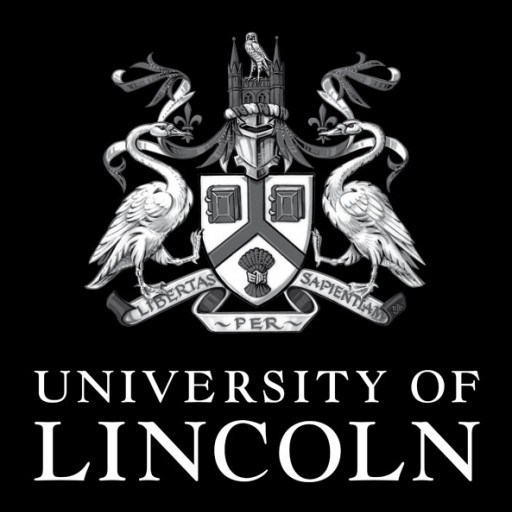The BSc (Hons) Biotechnology programme at the University of Lincoln offers students an in-depth understanding of the latest advancements in the field of biotechnology, equipping graduates with the knowledge and practical skills needed to succeed in a rapidly evolving industry. Throughout the course, students explore fundamental biological principles alongside cutting-edge technologies such as genetic engineering, molecular biology, and bioprocessing. The programme emphasizes hands-on laboratory work, enabling students to develop proficiency in techniques like PCR, fermentation, cell culture, and protein analysis, which are essential for modern biotechnology applications.
Students will learn about the application of biotechnology in various sectors including healthcare, agriculture, environmental management, and pharmaceuticals. The curriculum integrates theoretical knowledge with real-world experiences, supported by state-of-the-art laboratories and industry-standard equipment. This allows students to undertake research projects, develop problem-solving skills, and gain insight into current industry challenges. The programme also covers vital areas such as bioinformatics, synthetic biology, and regulatory affairs, preparing students for diverse careers or postgraduate study.
Furthermore, the course offers opportunities for placements and collaborations with biotech companies, providing valuable industry experience and professional networking opportunities. The University of Lincoln’s strong links with industry partners ensure that the programme remains relevant to current workforce demands. Graduates of this programme are well-positioned to progress into careers in research and development, quality assurance, production, or to pursue postgraduate study in related fields. The BSc (Hons) Biotechnology at Lincoln is designed to develop versatile, innovative graduates who can contribute to advancements in biotechnology and address some of the world's most pressing scientific and social challenges.
The Bachelor of Science in Biotechnology at the University of Lincoln is a comprehensive program designed to equip students with the essential knowledge and practical skills required for a successful career in the rapidly evolving field of biotechnology. This degree combines theoretical foundations with hands-on laboratory experience, enabling students to understand and manipulate biological systems for applications across medicine, agriculture, environmental management, and industrial processes. Throughout the course, students explore key areas such as molecular biology, genetics, microbiology, biochemistry, and bioinformatics, gaining a thorough understanding of the scientific principles underpinning contemporary biotechnological innovations. The program emphasizes the development of practical skills through laboratory classes, research projects, and industry placements, fostering a real-world understanding of techniques such as DNA sequencing, genetic modification, fermentation technology, and cell culture. Students are encouraged to engage in independent research, critical analysis, and teamwork, preparing them for roles in research institutions, biotechnology companies, healthcare, and environmental agencies. The course also covers important topics like ethical considerations, regulatory frameworks, and intellectual property rights relevant to the biotechnology sector, ensuring graduates are well-informed about industry standards and responsibilities. With dedicated support from experienced academic staff and access to state-of-the-art laboratories, students receive a balanced education that combines scientific depth with practical application. The program aims to cultivate innovative thinking, problem-solving abilities, and a strong foundation for postgraduate study or entering the workforce. Throughout their studies, students benefit from the university’s partnerships with local and national biotech firms, providing valuable networking opportunities and industry insights. Graduates of this program are well-prepared to contribute to advancements in healthcare, agriculture, environmental sustainability, and biomanufacturing, making a positive impact on society through scientific innovation. The Bachelor of Science in Biotechnology at the University of Lincoln is committed to delivering a high-quality, research-informed education that prepares students for the challenges and opportunities of the biotechnology sector in a global context.
Admission to the BSc (Hons) Biotechnology programme at the University of Lincoln typically requires applicants to have completed secondary education equivalent to at least 112 UCAS tariff points, which may include A-levels, Scottish Highers, or other recognized qualifications. Preferred subjects include science-related disciplines such as Biology, Chemistry, or Applied Science, to provide a solid foundation for understanding biotechnological concepts. Applicants are usually expected to demonstrate an interest in biological sciences and a good level of numeracy and laboratory skills. In addition to academic qualifications, relevant work experience or voluntary activity in scientific or laboratory environments can strengthen an application. International applicants must meet the university's English language proficiency requirements, such as an IELTS score of 6.0 overall with no less than 5.5 in any component, or equivalent qualifications recognized by the university. The selection process considers both academic achievements and personal motivation towards a career in biotechnology. Candidates may be required to attend an interview or provide a personal statement outlining their interest in the subject and career aspirations. The programme encourages applicants who have a passion for the life sciences and are eager to develop practical laboratory skills, theoretical knowledge, and an understanding of current biotechnological issues. The university values applicants who demonstrate analytical thinking, problem-solving abilities, and a commitment to scientific research. In summary, the programme requirements include a strong academic background in relevant sciences, sufficient English language skills, relevant experience or motivation, and the potential to succeed in a multidisciplinary scientific environment. Meeting these requirements ensures applicants can benefit fully from the course content, which covers molecular biology, genetic engineering, fermentation technology, bioinformatics, and industrial applications of biotechnology.
The University of Lincoln offers various financing options for students enrolled in the Biotechnology undergraduate program. Students are encouraged to explore multiple sources of funding to support their studies, including government loans, scholarships, bursaries, and private funding opportunities. For domestic students, the UK government provides student loans through the Student Loans Company, which cover tuition fees and may offer maintenance loans to help with living expenses. International students are advised to seek scholarships and sponsorships specifically aimed at international applicants, which can significantly reduce the financial burden. The university also provides a range of scholarships based on academic merit, financial need, or specific categories such as regional origin or future career aspirations. Tuition fees vary depending on residency status and the specific course requirements, and detailed fee information is available on the university’s official website. Additionally, students are encouraged to consider part-time employment opportunities both on and off-campus to supplement their income during their studies. The university’s careers service offers guidance on finding suitable part-time work and managing study-work balance. For students planning to undertake placements abroad or participate in additional training modules, there may be costs involved, but sometimes these expenses are offset by external funding agencies or partner organizations. The university also provides advice on applying for external bursaries, grants, and scholarships that are often available for students engaging in science-related fields such as Biotechnology. Students are advised to contact the university’s financial aid office early in their application process to receive personalized guidance and assistance. Overall, financing a Biotechnology degree at the University of Lincoln requires proactive planning and exploring multiple funding channels to ensure comprehensive financial support throughout the duration of the program.
Biotechnology at the University of Lincoln is a multidisciplinary programme designed to prepare students for a wide range of careers within the biosciences industry. The course combines fundamental principles of biology, chemistry, and technology, offering a comprehensive understanding of the mechanisms underlying biological systems and their applications in various sectors such as healthcare, agriculture, and environmental management. Students will explore subjects including molecular biology, genetic engineering, microbiology, and bioprocessing techniques, gaining practical laboratory skills critical for employment in biotechnology industries.
The programme aims to provide both theoretical knowledge and practical experience through hands-on laboratory work and industry placements. Students participate in experiments that simulate real-world scenarios, preparing them to solve complex biological problems and develop innovative solutions. The curriculum is regularly updated to reflect advances in biotechnology, ensuring graduates are equipped with current knowledge and skills relevant to the sector’s evolving demands.
Students will have the opportunity to engage with industry partners through work placements, guest lectures, and collaborative projects, fostering professional networks and enhancing employability. The course also promotes entrepreneurial thinking, encouraging students to consider how biotechnological innovations can be commercialized and brought to market.
The university offers state-of-the-art laboratory facilities, including modern equipment for molecular analysis, fermentation, and bioprocessing. Support services such as career advice, research guidance, and access to industry expert talks further enhance the learning environment. Graduates of the Biotechnology programme are prepared for careers in research and development, quality assurance, clinical research, and regulatory affairs, among others.
The programme typically spans three years for full-time students, with options for accelerated or part-time study depending on the academic structure. Graduates receive a BSc (Hons) degree in Biotechnology, qualifying them for postgraduate study or direct employment within the biotechnology and biosciences sectors. Overall, the programme at Lincoln aims to produce adaptable, well-informed professionals capable of contributing to scientific and technological advancements in biotechnology and related fields.








